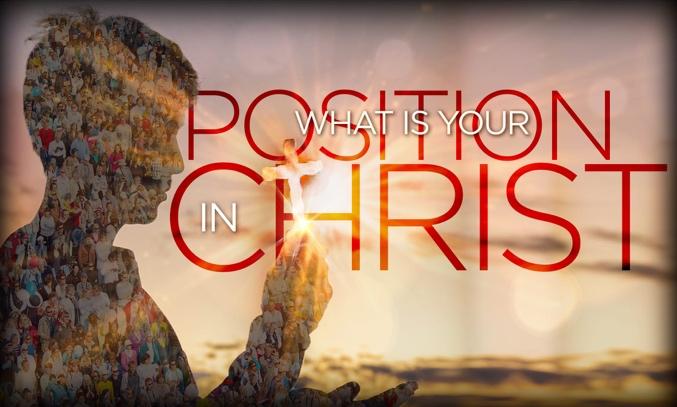Ch –Miren las letras grandes con las que estoy escribiendo con mi mano 6: 11-13
Miren las letras grandes
con las que estoy escribiendo con mi mano
6: 11-13
Miren las letras grandes con las que estoy escribiendo con mi mano ESCUDRIÑAR: ¿Por qué Pablo escribió en letras grandes? ¿Cuál fue la falsa motivación de los judaizantes? ¿Por qué los judaizantes estaban tratando de obligar a los gentiles de Galacia a circuncidarse? ¿Qué estaban haciendo los judaizantes para evitar su propia persecución por parte del Sanedrín y los judíos en Jerusalén? ¿Eran ellos mismos observantes de la Torá? ¿Por qué querían que los gentiles de Galacia se sometieran a la circuncisión, y trataran de observar los 613 mandamientos de Moisés?
REFLEXIONAR: ¿A quién necesita dirigirse en mayúsculas para que puedan entender el punto sobre Yeshua el Mesías? ¿Puede presentar claramente la diferencia entre el camino del logro divino y el camino del logro humano a un incrédulo? ¿Cuándo fue la última vez que lo hizo? ¿Hay alguien en su vida tratando de imponerle alguna forma de legalismo? ¿Cómo puede este libro de Gálatas ayudarlo a responderla? ¿De qué y de quién se jacta?
Pablo cierra su carta con una suscripción de su propia mano, en la que aborda las motivaciones subyacentes de los judaizantes en forma quiástica.
Pablo tenía la costumbre de dictar sus cartas a otros, pero escribir las palabras finales con su propia letra y su firma, proveyó la evidencia de que él era el autor (Segunda Tesalonicenses 3:17; Segunda Tesalonicenses 3:17-18; Primera de Corintios 16:21; Colosenses 4:18). Por ejemplo, Tercio, fue el secretario que escribió la carta a los Romanos como Pablo le dictó. (Romanos 16:22). Pero Pablo estaba tan preocupado de que los gálatas comprendieran el peligro en el que se encontraban, que le quitó la pluma a su secretario y escribió: Mirad con qué letras tan grandes os escribo de mi propia mano (6:11).171
Una palabra sobre las letras grandes con las que Pablo escribió. Había dos estilos de escritura griega, el uncial literario que consistía en letras de una pulgada de alto, formadas individualmente y sin conexión con otras letras, y la cursiva, usando letras más pequeñas en lo que podría llamarse un trazo corrido unido (sin levantar la pluma del papel). Además, había cuatro clases de caligrafía al estilo de los manuscritos del primer siglo. Primero, estaba el trabajo de un buen escriba profesional. En segundo lugar, estaba el trabajo de un buen escriba ordinario. En tercer lugar, estaba el trabajo de un hombre educado, pero no de un escriba profesional, que escribía una copia cuidadosa en cursiva. Y cuarto, estaba la escritura cursiva corriente común de todos los días. Pablo había dictado sus cartas a Tercio, Sóstenes, Timoteo y Silvano. Estos eran hombres educados, pero no escribas profesionales. Por tanto, su escritura sería la de un aficionado culto, escrita en cursiva, es decir, letras pequeñas unidas entre sí por una mano que traza. Eso significa que los manuscritos originales de Pablo estaban escritos en cursiva, y la parte que él escribió con su propia letra sería en letras de una pulgada de alto.172
La siguiente pregunta es por qué escribió en letras tan grandes de una pulgada de alto. Pablo había contraído una enfermedad ocular oriental llamada oftalmía, que no solo le daba un aspecto repulsivo, sino que lo dejaba casi totalmente ciego (haga clic en el enlace y vea Bp – Hasta que el Mesías sea formado en vosotros). Este era en Pablo el aguijón en la carne (Segunda Corintios 12:7). Por lo tanto, era necesario para él escribir en letras lo suficientemente grandes para que, con su visión oscurecida, pudiera ver lo que estaba escribiendo. El Espíritu Santo lo inspiró a agregar estas palabras finales para dar un contraste más entre los judaizantes y los creyentes llenos del Espíritu. TENÍA ALGO IMPORTANTE QUE DECIR Y NO QUERÍA QUE LOS GÁLATAS PERDIERAN EL PUNTO, POR LO QUE ESCRIBIÓ EN MAYÚSCULAS. Su voluntad de escribir todo este párrafo final (6:11-18) con su propia mano ciertamente atraería los corazones de sus lectores. 173
Habiendo señalado el principio del fin de la carta, Pablo continuó condenando a los judaizantes que estaban inquietando a sus discípulos, al intentar rechazar el evangelio de la gracia que predicaba Pablo, hacia un evangelio pervertido (1:7); vea Ag – ¿Quiénes eran los judaizantes? Estos dos enfoques de la salvación son los únicos dos que la humanidad ha conocido siempre. El camino de ADONAI es el camino de la gracia por medio de la fe (Efesios 2:8-9). Todos los demás, por diferentes que parezcan, son intentos fútiles de salvación a través de actos humanos. Es como si, en el estante de las religiones del mundo, hubiera cientos de paquetes atractivos, con una gran variedad de formas, tamaños, envoltorios y precios. Pero dentro de todos ellos está el mismo aserrín insípido y sin nutrición de las obras de justicia. Solo, poco atractivo y repulsivo para los no salvos, está el evangelio que salva vidas, el único que contiene alimento real.
Dios es el camino de la realización divina; todas las demás formas dependen de los logros humanos. Aquellos que siguen la religión de la realización divina dicen: “No puedo lograr nada en mi propio poder o bondad, y me entrego a la misericordia de YHVH, confiando en el suficiente sacrificio de Su Hijo a mi favor”. Aquellos que siguen el camino del logro humano, sin importar cuál sea su presentación, dicen: “Por mi propio mérito y en mi propio poder puedo hacerme aceptable a Ha’Shem y digno de un lugar en el cielo”.174
Versículos 12-13 están en forma quiástica (A – B – C – C – B – A):
A- Todos los que desean tener buena apariencia en la carne (6:12a). Primero, señala la falsa motivación de los judaizantes. No estaban preocupados por agradar a Dios con la justicia interior, sino por impresionar a otros hombres con el legalismo exterior. Fue con respecto a tales demostraciones de orgullo religioso que Yeshua dio repetidas advertencias. En una ocasión, contó una parábola diseñada especialmente para algunos que confiaban en sí mismos como justos y menospreciaban a los demás (Lucas 18:8). Habló de un fariseo que se puso de pie con orgullo en el templo, y agradeció a Dios por su propia bondad, y de un recaudador de impuestos que se paró a cierta distancia, y estaba demasiado avergonzado de su pecado que ni siquiera miraba hacia el cielo, como era la postura de oración habitual para los judíos en ese momento. En cambio, se golpeó el pecho y suplicó misericordia. Del recaudador de impuestos despreciado, dijo Yeshua que descendió a su casa declarado justo, mientras que el muy respetado fariseo no lo hizo (Lucas 18:9-14).175
B- …ésos os obligan a circuncidaros (6:12b). Para reforzar su propia marca de legalismo, los judaizantes también intentaron obligar a otros en las iglesias de Galacia a circuncidarse, como algo necesario para la salvación. ¡Ay de vosotros, escribas y fariseos hipócritas! que para hacer un prosélito recorréis mar y tierra, y cuando lo llega a ser, lo hacéis dos veces más hijo del infierno que vosotros (Mateo 23:15). No importa quien diga que es creyente, nadie se apoya en la carne y promueve algún beneficio sin Yeshua. El Mesías cumplió la obra perfecta y completa de salvación en la cruz, y las obras de la carne, sin importar cuáles sean, no pueden agregarse a lo que nuestro Señor ha hecho por nosotros. En cambio, cada una de estas actividades motivadas y orientadas hacia la carne es una ofensa a Ha’Shem y trae Su condenación en lugar de Su aprobación. 176
C- …sólo para no ser perseguidos por causa de la cruz del Mesías (6:12c). Los judaizantes decían ser creyentes y seguir al Mesías. Pero el Gran Sanedrín, y los judíos de Jerusalén los veían como parte de la Iglesia que predicaba que la salvación es igual a la fe más nada (vea el comentario sobre La vida de Cristo Lg – El Gran Sanedrín). Como tal, los judaizantes habrían sido perseguidos por sus compañeros judíos que habían rechazado a Yeshua como el Mesías. En realidad, los judaizantes no creían en la gracia, sino en las obras de la carne como medio de salvación. Ahora, para evitar ser perseguidos por los judíos bajo la acusación de que ellos habían abrazado la salvación en la fe en la cruz del Mesías, estaban tratando de forzar la circuncisión, y finalmente todos los 613 mandamientos de Moisés sobre los gentiles en las iglesias de Galacia.
Los judaizantes querían complacer a sus hermanos judíos que todavía se aferraban al legalismo y se negaban a tener nada que ver con la Iglesia visible. Para hacer esto, tendrían que mostrarle a los anti-misioneros en Jerusalén que ellos todavía eran obedientes a los 613 mandamientos de Moisés y la circuncisión, que era el tema principal en ese momento. Los gálatas gentiles ya habían sucumbido a las festividades judías guardando escrupulosamente días, y meses, y tiempos, y años (4:10), no por el gozo de compartir lo que Dios ha dado al pueblo judío, ni por identificación espiritual con ellos, sino por temor, inducidos por los judaizantes que los habían convencido de que, a menos que ellos lo hicieran, Ha’Shem no los aceptaría. Se añadiría más legalismo a medida que se presentara la oportunidad. 177
C- Porque ni aun los mismos que se circuncidan guardan la ley (6:13a), esto es guardar perfectamente los 613 mandamientos. Los judaizantes no sólo intentaron imponer la circuncisión a los gentiles, para aplacar a sus hermanos judíos fuera de la Iglesia y ganar su confianza a pesar de que se los identificaba con un cuerpo de personas que enseñaban la gracia, sino también, para encubrir su propia falta de obediencia a los 613 mandamientos de Moisés.
B- …pero desean que vosotros seáis circuncidados para gloriarse en vuestra carne (6:13b). Los judaizantes no eran más que judíos legalistas que decían seguir al Mesías. Pero estaban en las iglesias de Galacia como lobos vestidos de oveja (vea el comentario sobre Judas Ar – Estas personas son rocas ocultas en sus ágapes (fiestas de amor), pastores que solo se alimentan a sí mismos, son como nubes sin lluvia. En la despedida de Pablo a los líderes de Éfeso, predijo lo que sucedería cuando dejara las iglesias que había iniciado: Yo sé que después de mi partida, entrarán entre vosotros lobos feroces que no perdonan al rebaño, y de entre vosotros mismos se levantarán hombres que hablan perversidades, para arrastrar a los discípulos tras sí (Hechos 20:29-30). Por lo tanto, aquellos judaizantes apóstatas no estaban saliendo del armario y admitiendo que no eran realmente creyentes. Ellos fueron engañadores. No se estaban quitando la piel de oveja, por así decirlo, y revelando que en realidad eran lobos salvajes. No. Su plan era más siniestro. Estaban “solo” pidiendo a los gálatas gentiles que se sometieran a una conversión completa: la circuncisión y que juraran obediencia a los 613 mandamientos de Moisés para lograr una posición correcta ante ADONAI. En otras palabras, legalismo. Su objetivo era, en última instancia, el rechazo del evangelio mismo. En su acto de imponer, si era posible, la circuncisión a los gentiles, podían jactarse ante sus hermanos judíos en Jerusalén, y demostrar cuán supuestamente celosos eran ellos por la Torá después de todo.178
A- …para gloriarse en vuestra carne (6:13c). Desde el momento en que Caín ofreció su ofrenda inaceptable a YHVH, la humanidad ha usado la religión como una tapadera para el pecado (vea el comentario sobre Génesis Bi – Caín y Abel). Como demuestran los judaizantes, es posible ser extremadamente activo en una sinagoga o iglesia mesiánica y, sin embargo, ser moral y espiritualmente corrupto. En ninguna parte la hipocresía es más fácil o más peligrosa que en la obra de Dios. Y en ninguna parte despierta Su ira más que donde se practica en Su nombre. De los maestros de la Ley, que se sentaron en la silla de Moisés, Yeshua dijo: En la cátedra de Moisés se sientan los escribas y los fariseos. Haced y guardad pues todo cuanto os digan; pero no hagáis conforme a sus obras, porque dicen y no hacen; y atan pesadas cargas y las ponen sobre los hombros de los hombres, pero ellos no las quieren mover ni con su dedo (Mateo 23:2-3). La carga más grande que los escribas y los fariseos pusieron sobre los hombros de la gente fue la carga insoportable de la salvación por el esfuerzo humano. Debido a la hipocresía de ellos, no fue una gran carga para ellos, pero para el judío concienzudo fue inimaginablemente frustrante y sin esperanza. Toda persona se enfrenta a la elección entre jactarse de lo que ha hecho en la carne y jactarse de lo que Yeshua el Mesías ha hecho por ellos en la cruz (vea Ci – Jamás me suceda gloriarme, sino en la cruz de nuestro Señor Jesús, el Mesías).179
Querido Padre Celestial, ¡cuánto te amamos! ¡Qué maravilloso es que Tú seas nuestro gozo y podamos gloriarnos en ti! Tú eres santo. Los Serafines el uno al otro daba voces, diciendo: Santo, Santo, Santo, es el SEÑOR de los ejércitos, llena está toda la tierra de su gloria (Isaías 6:3). Tú eres a quien puedo acudir cuando tengo un problema. ADONAI es mi roca, mi fortaleza y mi libertador. Invocaré a YHVH, quien es digno de toda alabanza, Y seré salvo de mis enemigos (Salmo 18:3). Siempre estás conmigo para ayudarme. Porque Dios mismo ha dicho: No te dejaré ni te desampararé (Hebreos 13:5c). Tú eres increíble y me encanta adorarte y seguirte con todo mi corazón. En el santo nombre de Tu hijo y el poder de Su resurrección. Amén



 Porque el que siembra para su carne, de la carne cosechará corrupción, pero el que siembra para el espíritu, del Espíritu cosechará vida eterna (6:8). La palabra para (del griego: eis) significa con vista a. Siembra con miras a la naturaleza caída se refiere al acto de una persona que elige aquellas cosas que satisfarán los deseos de la naturaleza totalmente depravada. En este contexto, estas palabras se refieren a los gálatas gentiles quienes, al seguir las enseñanzas de los judaizantes, siguieron los deseos de su naturaleza caída. Toda doctrina falsa se ajusta para apelar a la naturaleza caída de la humanidad, satisfaciendo su instinto de adoración, mientras que al mismo tiempo le permite continuar en su pecado. Las enseñanzas de los judaizantes atendieron a las naturalezas caídas de los gálatas en el sentido de que, no exigieron la necesidad de la regeneración, ni la fe en el sacrificio de Yeshua en la cruz, que pagó por el pecado. Además, sus enseñanzas enfatizaban el legalismo, una religión de salvación por obras, que glorifica a la humanidad, no a ADONAI. Esto solo podría conducir a la corrupción en sus vidas.167
Porque el que siembra para su carne, de la carne cosechará corrupción, pero el que siembra para el espíritu, del Espíritu cosechará vida eterna (6:8). La palabra para (del griego: eis) significa con vista a. Siembra con miras a la naturaleza caída se refiere al acto de una persona que elige aquellas cosas que satisfarán los deseos de la naturaleza totalmente depravada. En este contexto, estas palabras se refieren a los gálatas gentiles quienes, al seguir las enseñanzas de los judaizantes, siguieron los deseos de su naturaleza caída. Toda doctrina falsa se ajusta para apelar a la naturaleza caída de la humanidad, satisfaciendo su instinto de adoración, mientras que al mismo tiempo le permite continuar en su pecado. Las enseñanzas de los judaizantes atendieron a las naturalezas caídas de los gálatas en el sentido de que, no exigieron la necesidad de la regeneración, ni la fe en el sacrificio de Yeshua en la cruz, que pagó por el pecado. Además, sus enseñanzas enfatizaban el legalismo, una religión de salvación por obras, que glorifica a la humanidad, no a ADONAI. Esto solo podría conducir a la corrupción en sus vidas.167 Sobrellevad los unos las cargas de los otros, y cumpliréis así la ley del
Sobrellevad los unos las cargas de los otros, y cumpliréis así la ley del



 La última evidencia del fruto del Espíritu Santo es
La última evidencia del fruto del Espíritu Santo es  De todas las evidencias del fruto del Espíritu, la
De todas las evidencias del fruto del Espíritu, la 








 Fidelidad
Fidelidad